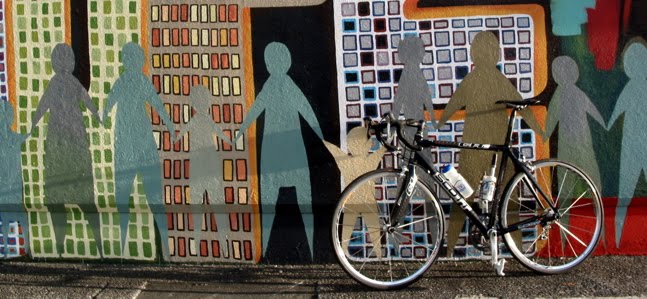The Dwain Chambers one-man circus has amazed and entertained onlookers for many years, but it looks like the show will stay in town for a while longer now that the controversial sprinter has serialised his autobiography in UK national newspaper The Daily Mail, hooked up with his old doping advisors and at the same time completed an impressive comeback.
The 30-year-old dashed to 60m victory at the European Indoor Championships on March 7, setting a new 6.42sec record in the semi-finals. It marked a great return to competition after years in the wilderness following a failed drug test for THG.
The positive sample was taken in an out of competition test in August 2003. Chambes was slapped with a two-year ban, told to repay all his prize money that he won while doped and was ostracised by the media and former team-mates.
Not one to shy away from the spotlight, he had a spell playing American football in the Europa league for German team Hamburg, tried out unsuccessfully for the NFL and attempted to break into rugby league for Castleford Tigers.
Now back, apparently running clean and running quick, Chambers finds himself still labelled as an embarrassment to his country and sport.
Although his determination is remarkable, he doesn’t seem to realise that most of his setbacks and problems are due to his own foolishness and blunders.

Of course his biggest mistake was doping in the first place. Chambers’ coach Remi Korchemmy and his nutritionist Victor Conte were both workers at BALCO, the now infamous lab credited with introducing steroid tetrahydrogestrinone (THG, also known as “the Clear”) to sport.
Under their guidance, Chambers began taking THG, human growth hormone (HGH) and EPO, as well as masking creams and other stimulants. Ironically, his times and results were consistently quicker than when he hooked up with Conte and in his autobiography he details the terrible side effects of the drugs, complaining of vicious stomach cramps among other things.
Next booboo was that when caught, Chambers claimed he didn’t know what Conte was giving him, and that his doping began in August 2003. He later contradicted this saying he was too naïve and lacked the self-respect to act otherwise.
Then, soon before his drug ban ended at the end of 2005, he told the BBC that he had actually started doping at the beginning on 2002, some 20 months earlier than his initial claim. This led to him having more results and records stripped and delayed his return.
In 2006 he was competing again, however this wasn’t a happy period despite being part of a 4x100m gold medal winning team at the European Championships. As well as general media condemnation, Chambers was blasted by fellow sprinter Darren Campbell who was upset at having his 2003 world championship relay gold taken away due to Chambers’ positive.

He began his ultimately doomed gridiron experience in 2007, during which he gave an interview with the BBC’s Matthew Pinsent, saying that it’s possible for a clean athlete to beat a doped one, but “the person that’s taken drugs has to be having a really bad day.”
Even though this sounds like a fairly accurate statement, it didn’t ring well with other athletes or British officials, and ultimately the gaff led to more difficulties later on.
The Europa gridiron league collapsed midway through 2007 and Chambers decided to return once again to athletics for 2008. He was aiming for the Beijing Olympics, was running well and mounted a legal campaign to overturn his life ban. Some promoters refused to let him run at their events, his prize money repayment debts were still huge and the fallout from the Pinsent interview continued to haunt him in the media.
For some unfathomable reason, Chambers announced in March 2008 that he was going to play rugby league for Castleford. He’d never played the sport before, but registered as a league player and started training. Nevertheless, he continued to speak publicly about running for Great Britain at the Olympics. Non-too impressed with their new signing Castleford released him after one game with the reserves.
Back to athletics, and even though his bid to overturn his lifetime Olympic ban failed, Chambers continued training and began 2009 with renewed vigour. Showing that he is undoubtedly his own worst enemy, his autobiography serialisation in the Daily Mail coincided with the European Indoor Championships. In it, he criticised top UK athletics officials, including Sebastian Coe, as well as other athletes and his former agent John Regis, and revealed details of his drug abuse.
Regis said he might sue, and British athletics head coach Charles van Commenee said, “the sport could do without” Chambers’ book. On March 8 van Commenee announced he has no plans for Chambers to be part of the 4x100m team at this year’s World Championships in Berlin in August.
As if the book hadn’t caused enough hassles, it emerged just a few days later that Chambers had renewed ties with Conte and Korchemmy. Since October 2008, Conte has overseen Chambers’ usage of an ‘Altolab Altitude Simulator’, which mimics training at high altitude and Korchemmy has admitted to sending Chambers “advice.”
While this is not illegal, the fact Chambers is even talking to Conte or Korchemmy after everything that has happened over the past seven years is staggeringly stupid.
There’s no doubt the man is gifted. He may well continue to post fast times and race clean for the rest of his career, but for Chambers to move on and attain the recognition and respect his talent deserves, he needs to engage his brain before making decisions way more often.
